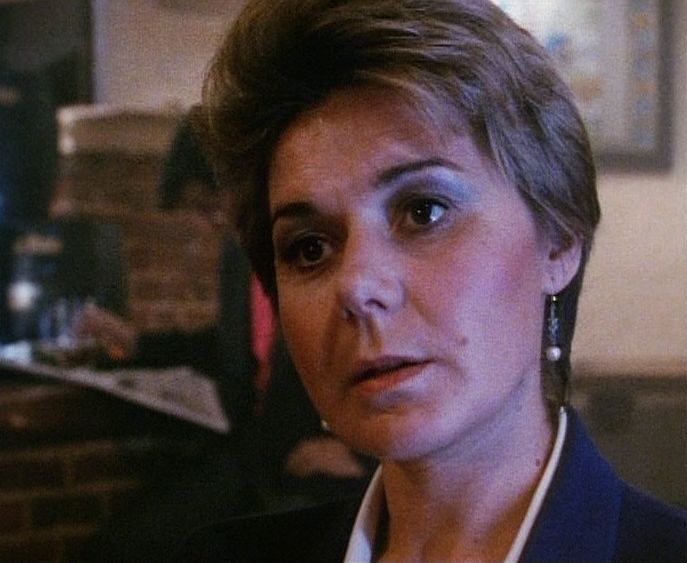
Richard is in Australia, having infiltrated a mysterious group who are doing dodgy things with an atom bomb that’s due to be tested soon. His attempt to round them up doesn’t end well, with the result that he loses his memory. Luckily he eventually comes to his senses, only to realise that he’s sitting right next to the bomb and the clock is (once again) ticking ….
We open in the Simpson Desert, which is apparently comprised of red sand (the ITC studio desert has a much more golden hue though). I rather like the cold opening – Richard confronting a group of baddies in a helicopter – although since he does so in such a smug way you know that something bad is going to happen to him. And so it does – they overpower him and he falls out. Ouch!
Post credits, Richard – cool as a cucumber – is shown demonstrating his super powers by jumping out of a burning building without hurting himself. This is a tad unfortunate as it makes you wonder why he couldn’t do that when he took his helicopter tumble.
Monty Berman always had a good eye. Apparently the fire was a real one that occurred just round the corner from the Borehamwood studios, so a crew was set out to take some shots and pop William Gaunt into the middle of the action.
Richard has gone it alone, not confiding in Tremayne, Craig or Sharron about exactly what he’s up to. Given he’s venturing out to the middle of nowhere that seems a little silly. Still all three (yes all three) set off to Australia, partly to track him down and partly to observe the bomb test.
This is a bit of a red letter day – Tremayne getting out of the office for once. A pity it hasn’t happened before, and indeed it’s a shame that Anthony Nicholls hasn’t really been used more. Tremayne has generally functioned either as a device for moving the plot along or as comic relief (puzzled time and again by the incredible antics of his three top agents).
Happening doesn’t have a particular large guest cast, but Grant Taylor as General Winters and Michael Gough as Major Joss are both welcome additions. For me, Taylor will always be the no-nonsense General Henderson in UFO (his General here isn’t a million miles away from his UFO character, albeit a little less grumpy).
Winters is looking forward to the bomb test – it promises to be incredibly powerful, but also ‘clean’ with very little radioactive fallout (this is presented to the audience as a good thing although Tremayne does sound a pessimistic note).
As we’ll see later, the faceless baddies have been doing things to the bomb, with the result that it’s now considerably dirtier than it was before. Odd that there doesn’t seem to be any sort of security around the bomb. That’s a tad careless.
Major Joss is the leader of the black hats, stranded in the desert after his helicopter is damaged. Although it’s not specified, given the accent of his superior (who breaks the news that they’re not going to send another helicopter in to rescue him) it seems that the Russians are behind this dastardly business. Mind you, it’s fair to say that Joss’ boss has the sort of accent that teeters on the edge of parody.
Jack MacGowran may not be a household name, but this Irish-born actor had quite the career (he’s possibly best known for his association with Samuel Beckett). MacGowran might not have been the obvious choice to play Banner B. Banner, an Australian prospector, but he gives an entertaining, if rather odd, performance.
Banner meets up with a still dazed and confused Richard, but their relationship seems fated to be a brief one after Richard succumbs to a snake bite. Richard then telepathically links with Sharron – was she the one responsible for bringing him back to life? It’s a striking scene – Richard in a hastily dug grave, getting covered with sand by Banner, before springing back into life and crawling out ….
Happening is an strange sort of story. The studio desert isn’t terribly convincing and Banner B. Banner apart, the guest roles aren’t very well developed. Given that it was a Brian Clemens script you do expect a little more, but it’s still very watchable – Richard’s attempt to diffuse the bomb especially – so I’ll give it a rating of three out of five.




